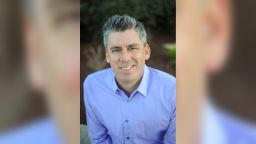Editor’s Note: Greg Bardsley is the author of the novels “Cash Out” (2012) and “The Bob Watson” (2016) from HarperCollins Publishers. A former columnist and speechwriter, he lives in the San Francisco Bay area. Follow him on Twitter. The opinions expressed in this commentary are his own. View more opinion on CNN.
Getting my Covid-19 vaccine has left me thinking about the different ways people respond to crises.

Roughly one year ago, so many of us spasmed. We succumbed to our fears, and we freaked out. We scrambled to grocery stores. We rationed food. We prepared to gouge eyes for toilet paper. We ingested large quantities of booze and we argued. Boy, did we argue.
During that same time, a group of quiet, focused and determined people went to work. They went to their labs, pored over data, hunched over instruments and tapped into their collective genius in ways my liberal arts mind won’t ever fully comprehend.
And thus began a year of striking dualities.
While our last president was denying the severity of the crisis, these people began tapping into data about previous corona viruses. While I was seriously considering accepting front door deliveries with tongs and snorkeling gear, they mobilized to share their data with one another.
While we were complaining about cheese-less fajitas or throwing grocery store tantrums, they were pouring their passions into developing vaccine candidates. While we felt helpless as loved ones got sick and death rates spiked, they got started on clinical trials involving tens of thousands of courageous volunteers.
While some aggrieved citizens were staging panicky armed protests at state capitols, they were manufacturing vaccine doses before the trials even finished. While anti-maskers were having hysterical public fits, their steady hands and calm heads were developing tracking systems to ensure the safe and efficient distribution of vaccines.
Things aren’t perfect. The vaccination effort has been complicated by unequal access to shots, an incomplete understanding of side effects and manufacturing foul-ups. And yes, scientists occasionally gave bad advice this past year and needed to correct themselves – we probably didn’t need to wipe down our groceries and mail. There will likely be more course corrections in the months to come.
But isn’t the pursuit of greatness always prone to stumbles? Solving the greatest health crisis of our lifetimes has been a human endeavor, naturally full of blunders, fiascos, delays, tempers lost and lessons learned.
So, let’s not lose sight of the bigger picture. It’s quite breathtaking.
While the public fretted and fumed, the scientific community quietly and unceremoniously pursued one of humankind’s greatest medical feats. Now – after about a year – we’re close to having pumped life-saving doses into the arms of 1 billion people worldwide. On Wednesday, in a speech to the nation, President Joe Biden touted the anticipated milestone of the United States alone administering 200 million coronavirus vaccine shots since he took office.
And I am so grateful.
Because, while I worried myself sick about my people … While I stayed home and played Scrabble with my family … While I argued on Twitter and Facebook and yelled at the television … While I zombied through my house at 3 a.m. with a bottle of disinfectant … While I visited my 82-year-old mother from the sidewalk as she looked down from her balcony … While I wondered what would become of us all …
They were working to take care of me.
Because of these quiet and determined people, more of our shops and restaurants are reopening. More of our sons and daughters are returning to school and even playing sports. More offices are reopening, and some ICUs are thinning out. Doctors and nurses and other caregivers are getting a break, and the ones we love are safer.
Things are still quite a mess in many ways, but fewer people are dying.
And because of the scientists, my mom finally came down from her balcony, and soon we were doing what we’ve missed so dearly: Standing shoulder-to-shoulder in my kitchen, arguing about the best way to prepare mashed potatoes (she won that debate, of course).
So, let us thank the scientists.
Let’s sing their praises. Let’s give them ticker tape parades that would have made Neil Armstrong blush. Let’s commission a national monument in Washington. Let’s do musicals and documentaries and Oprah interviews and TikTok videos and halftime shows in their honor. Let’s name cocktails and burgers and babies after them.
Let there be ice sculptures of their likeness in the grandest of venues. Let’s send them to the White House for a ceremony in the Rose Garden that won’t become a superspreader event.
Yes. Let us thank the scientists.
Because without them, we’d still be raging.


